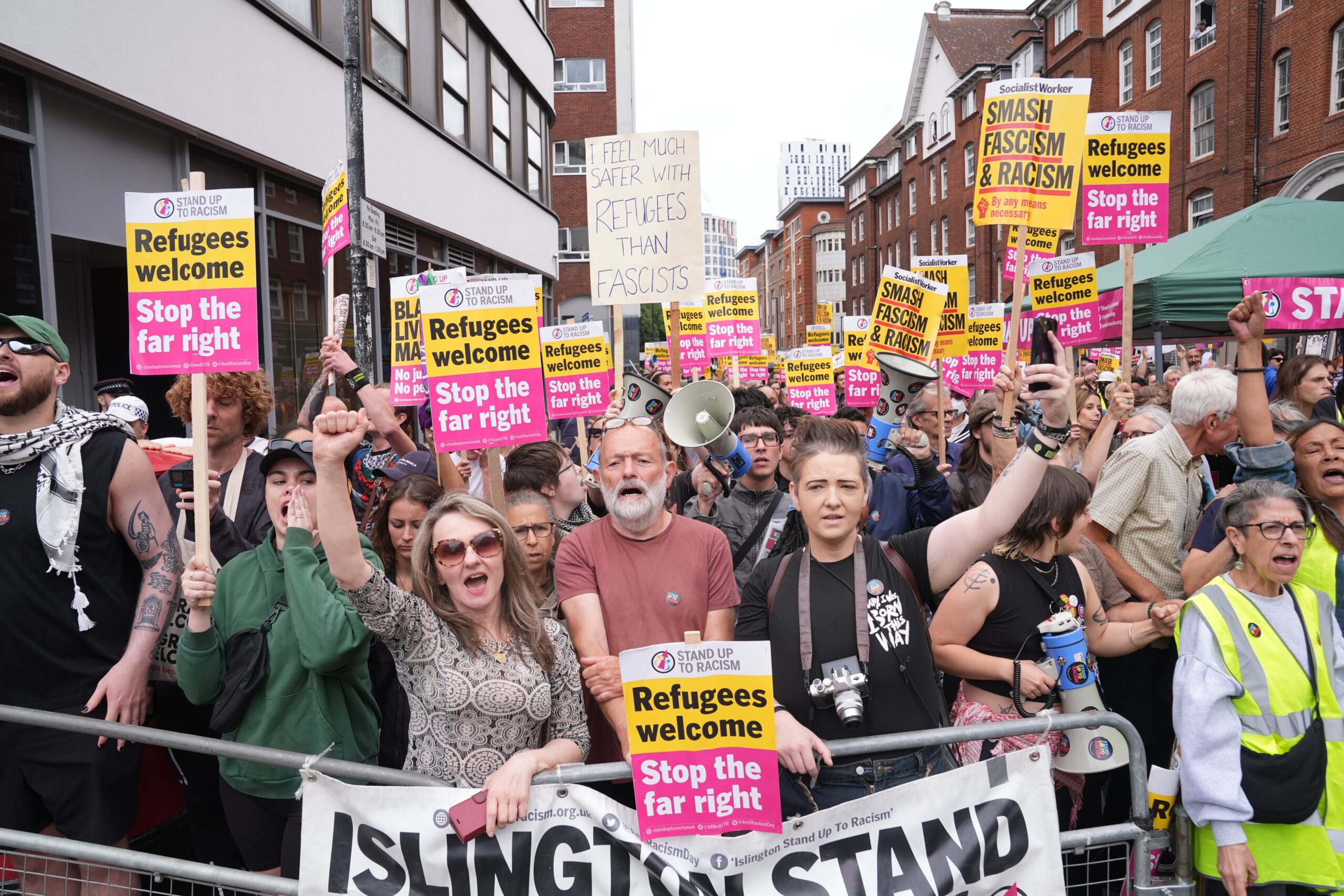Sir Keir Starmer could end the use of controversial migrant hotels within the next six months if he offered a blanket amnesty to asylum seekers from a handful of countries, it has been claimed.
The Refugee Council says ministers would be able to stop relying on the hotels by March next year by offering a one-off temporary reprieve for thousands of migrants from nations with high grant rates, such as Afghanistan, Syria and Iran.
Home Office figures show asylum applications from Sudan have a 94 per cent approval rate, while grant rates for Syrians have been as high as 98 per cent in recent years. Yet thousands from these countries are put in hotels for months on end, unable to work or study, while their applications are reviewed.
Labour has vowed to end reliance on hotels by 2029, but has been under pressure to close them earlier after a string of anti-migrant protests across the country. The demonstrations started outside the Bell Hotel in Epping, which the High Court ruled last week was no longer allowed to house asylum seekers following the violence. The Court of Appeal is due to hear a legal challenge to that ruling on Thursday.
The Refugee Council said such a move would be following in the footsteps of the 1997 Labour government, which between 1999 and 2000 allowed nearly 30,000 grants of exceptional leave as part of a plan to deal with a growing backlog of asylum claims. Applicants who claimed asylum before 1 July 1993 were also automatically granted a reprieve unless there were public interest grounds not to, or their removal had already begun, the brief published on Thursday explained.
However, Jack Straw, who was home secretary at the time, told The Independent that he regretted the amnesty “as soon as I had taken the decision”. “Although it did indeed ‘clear the backlog’, it acted as a pull factor”, he said.

Chris Philp, the shadow home secretary, added that the proposals “amount to waving through tens of thousands of asylum seekers without properly testing their claims, rewarding those who came illegally”.
But independent MP and former shadow chancellor John McDonnell told The Independent: “This is a constructive and practical policy responding to the appalling xenophobia promoted by Reform. The asylum seekers I have had experience of over the last decades don’t want to be trapped in hotels, they want to join our communities and make their contribution to our society and our economy.”
However, with Labour panicking over the threat from Nigel Farage, some senior figures in the party said that the Refugee Council proposals could not work in the prevailing political circumstances. Speaking to The Independent, Dame Emily Thornberry, chair of the foreign affairs select committee, warned: “It’s a non-starter in the current climate.”
Meanwhile, Ben Maguire, Lib Dem shadow attorney general, said Labour should speed up asylum processing, adding: “Ministers should look seriously at ideas like these to make it happen.”
According to analysis of Home Office data by the Refugee Council, four in 10 of those housed in hotels are from either Afghanistan, Eritrea, Iran, Sudan or Syria. As of June 2025, there were 32,059 asylum seekers in UK hotels.
Housing asylum seekers in hotels costs around £5.77m per day, down from £8.3m per day in 2024, according to the Home Office.
Nationals from Eritrea have an 87 per cent asylum claim grant rate at initial decision, and those from Sudan are even higher, at 94 per cent, analysis found. Asylum grant rates for Syrians has been very high in recent years – at 98 per cent – although this may change following the fall of the Assad regime.
Similarly, Afghans had a 96 per cent success rate on initial asylum decisions in 2024. This has fallen to 39 per cent in the year to June 2025 after changes in the Home Office’s country guidance that reduced the types of people who would be at risk from the Taliban. For Iranians, this has fallen from 82 per cent to 60 per cent.
It is currently not possible to forcibly return people to Syria, Afghanistan or Iran.
A further 20,198 people from these countries were in Home Office dispersed or contingency accommodation, such as houses of multiple occupancy, the latest figures show. In total, 32,917 people are being supported in government accommodation.
If they were all granted a temporary form of leave, allowing them to live and work in the UK, ministers could end the use of hotels entirely, the charity said.
After the time-limited leave, the Home Office would then take a decision on whether that asylum seeker should be allowed to stay in the UK.

Enver Solomon, chief executive of the Refugee Council, said: “Our analysis shows we don’t have to wait until 2029 to end the use of asylum hotels – last week’s High Court ruling on the Bell Hotel in Epping has already proven this timeline is no longer viable. A targeted, ‘one-off’ scheme focusing on cases from countries with high grant rates for asylum could end the use of hotels by 2026.
“As long as hotels remain open, they will continue to be flashpoints for far-right activity, fuelling tensions and driving communities apart”.
The Home Office has promised a “big surge” in asylum hotel closures in the new year, with a government source telling The Guardian that “by the end of the year at least five more hotels are expected to be closed”.
It comes after Reform UK pledged mass deportations of some 600,000 asylum seekers if it takes power. And minister Nick Thomas-Symonds accused Nigel Farage of “dividing communities and stoking anger”.
Mr Straw said an effective amnesty would encourage people to come to the UK, adding: “The people smugglers are very skilful in monitoring what happens in the UK, so if they spot what they see as a chink they will exploit it. It subliminally sent out a message that if you dug in and were as difficult as possible, then the chances were you would be able to stay … So I very quickly decided it was a mistake.”
The former Labour home secretary in the Blair government has proposed that the UK should make its human rights legislation self-contained and not linked to the ECHR.
Mr Straw, who helped draft the UK’s 1998 Human Rights Act, said: “This stuff that we would be placed in the position of Russia or Belarus is frankly rubbish. I’m not proposing that we should leave the ECHR, what I am doing is [suggesting] that we do what a number of other European countries have done, [which] is to make their human rights legislation self-contained and not linking into the ECHR.”
Saying that the government needed to “get ahead on this”, he added: “I think the government has this in hand, we need to act in concert with other European countries who are equally concerned about the way that the Strasbourg court has gratuitously disrupted asylum returns”.
Mr Philp added: “This proposal is nothing more than an amnesty by the back door. Labour promised to end the use of hotels, but all they’ve delivered is confusion, chaos, and communities treated as dumping grounds. The only way to end hotel use is to stop the crossings through deterrence, deportation, and the tough powers set out in our deportation bill.”
A Home Office spokesperson said: “Since taking office, we have taken immediate action to fix the asylum system and have started closing down hotels and returning more than 35,000 people with no right to be here.
“From over 400 asylum hotels open in summer 2023, costing almost £9m a day, there are now fewer than 210, and we want them all closed by the end of this parliament.
“We will continue to work closely with community partners across the country, and discuss any concerns they have, as we look to fix this broken system together. The security of the local communities within which hotels are located will always be our paramount concern.”
